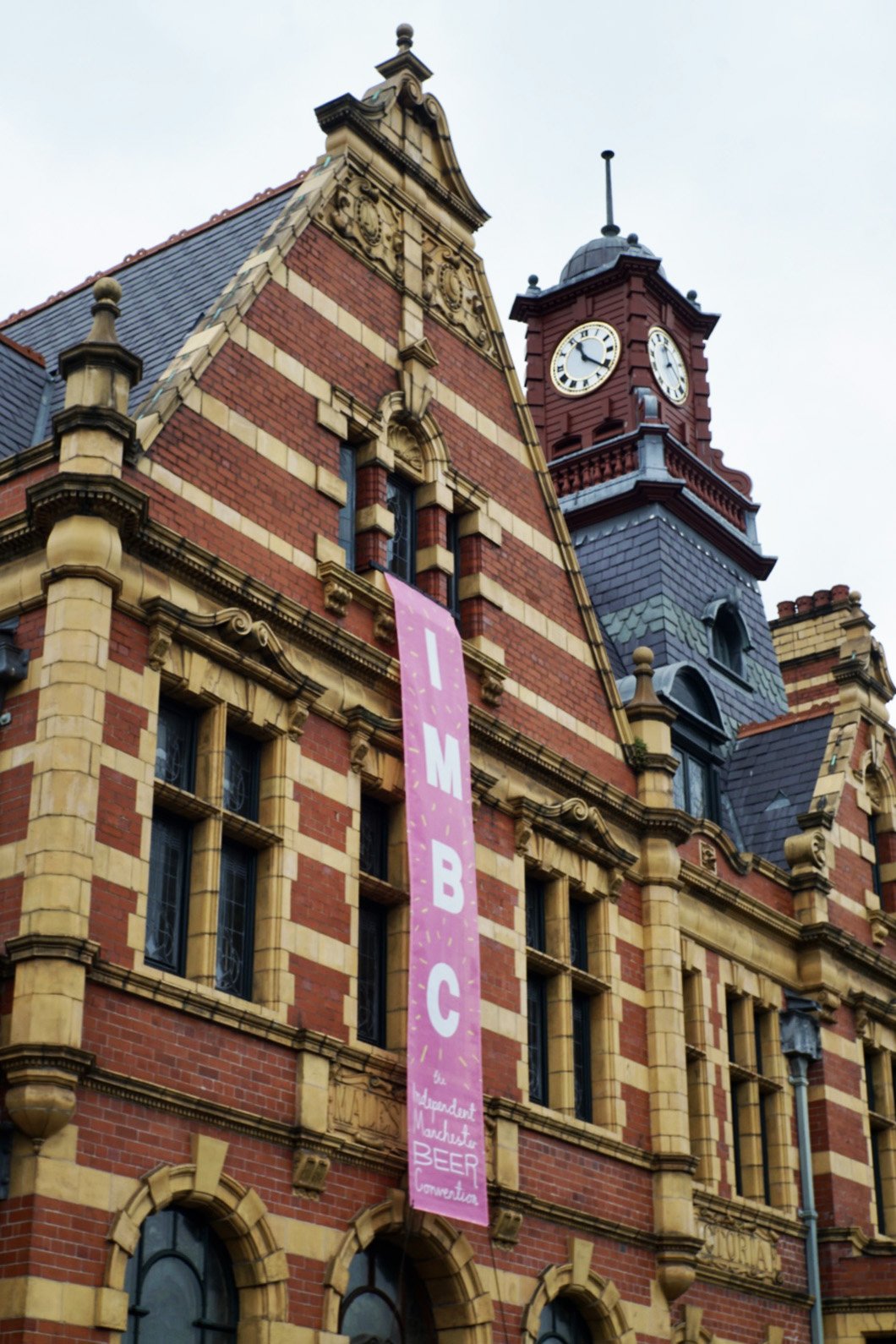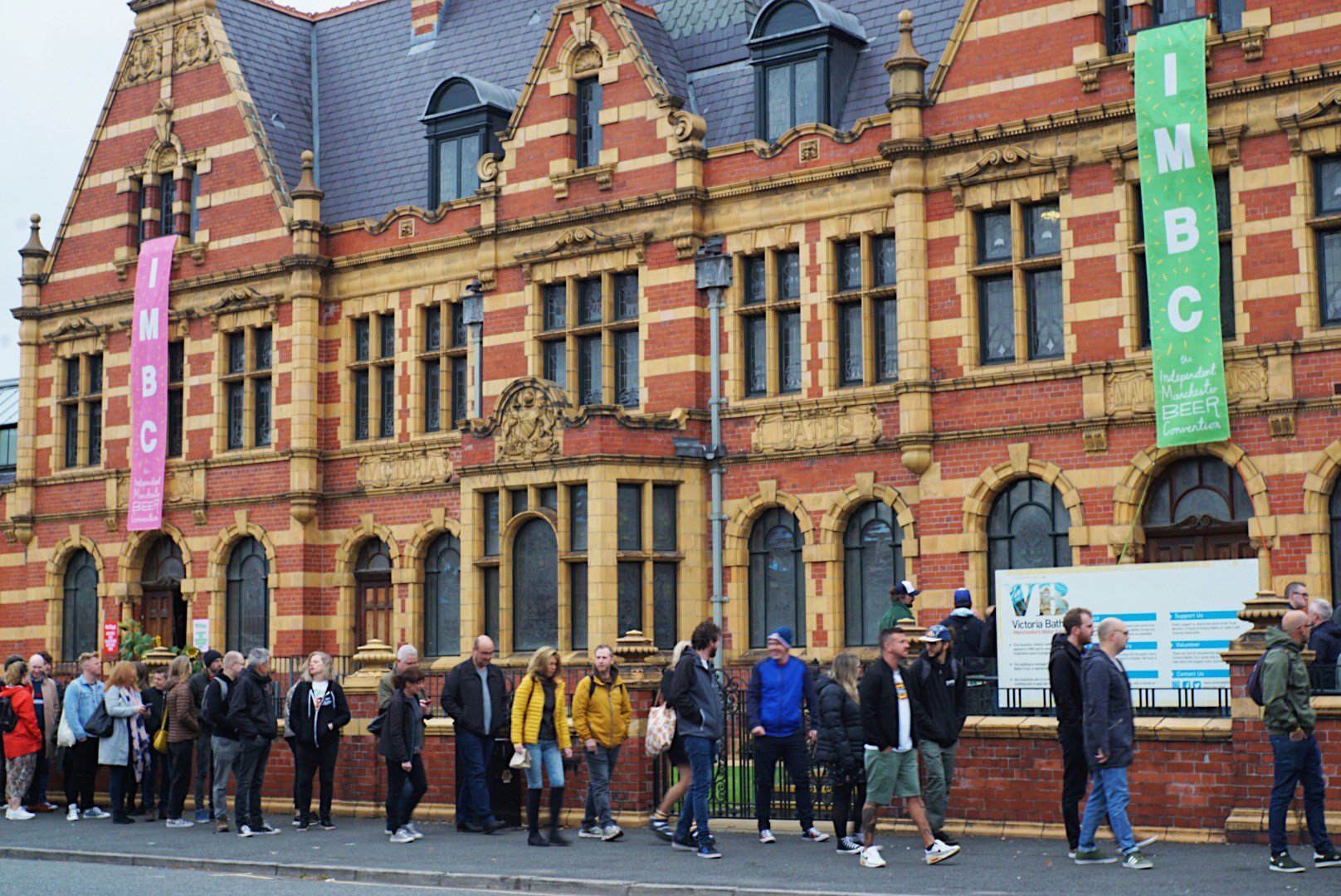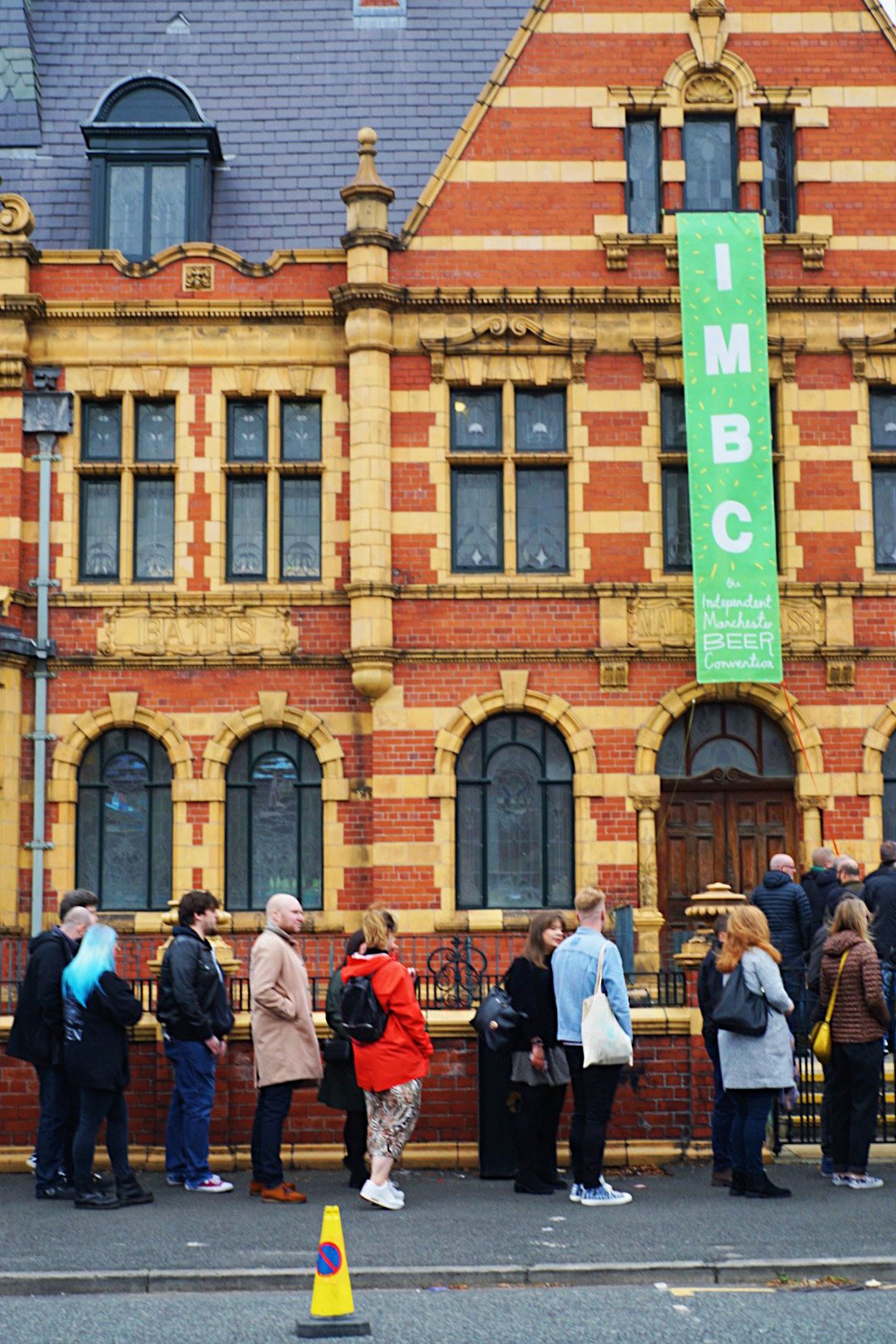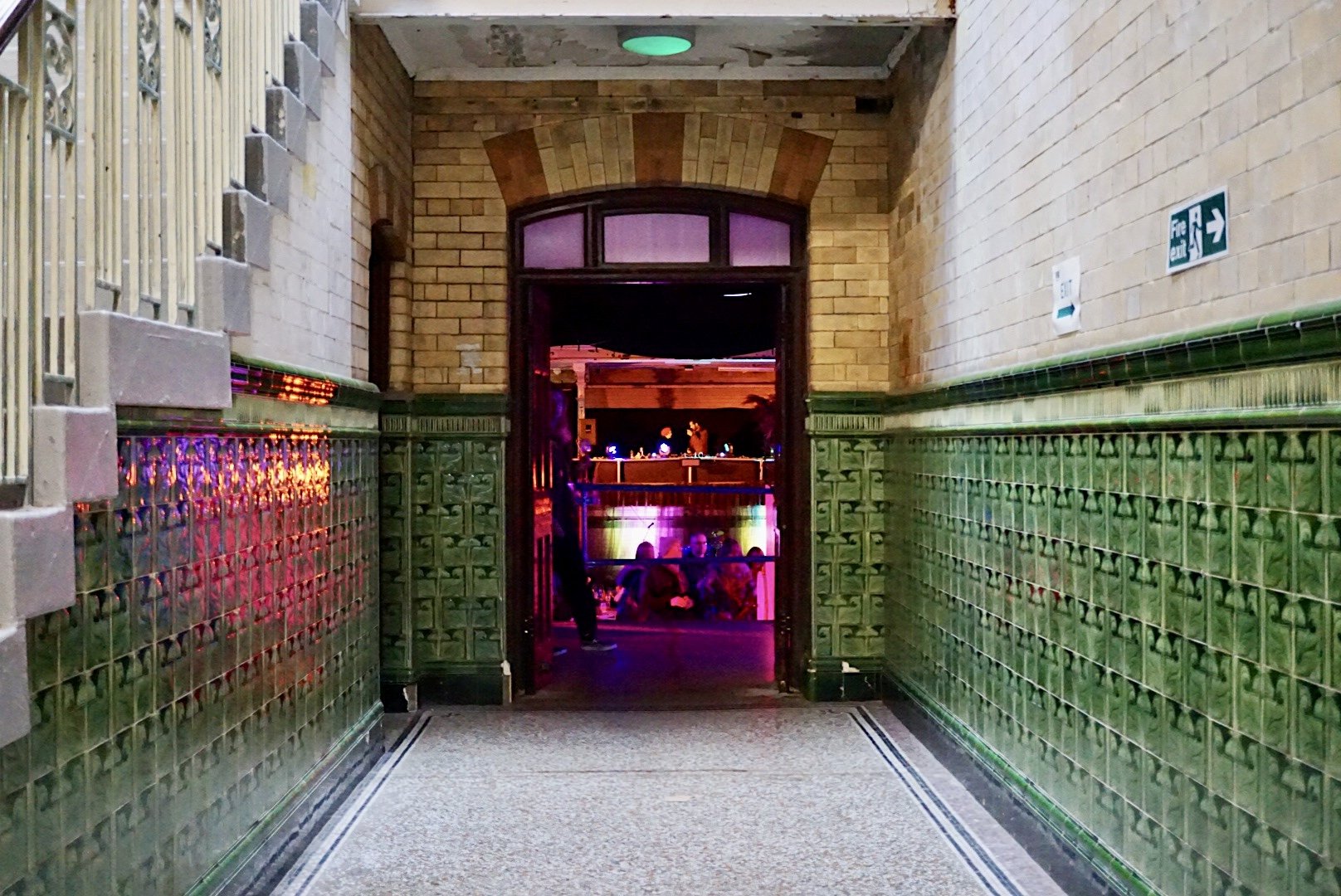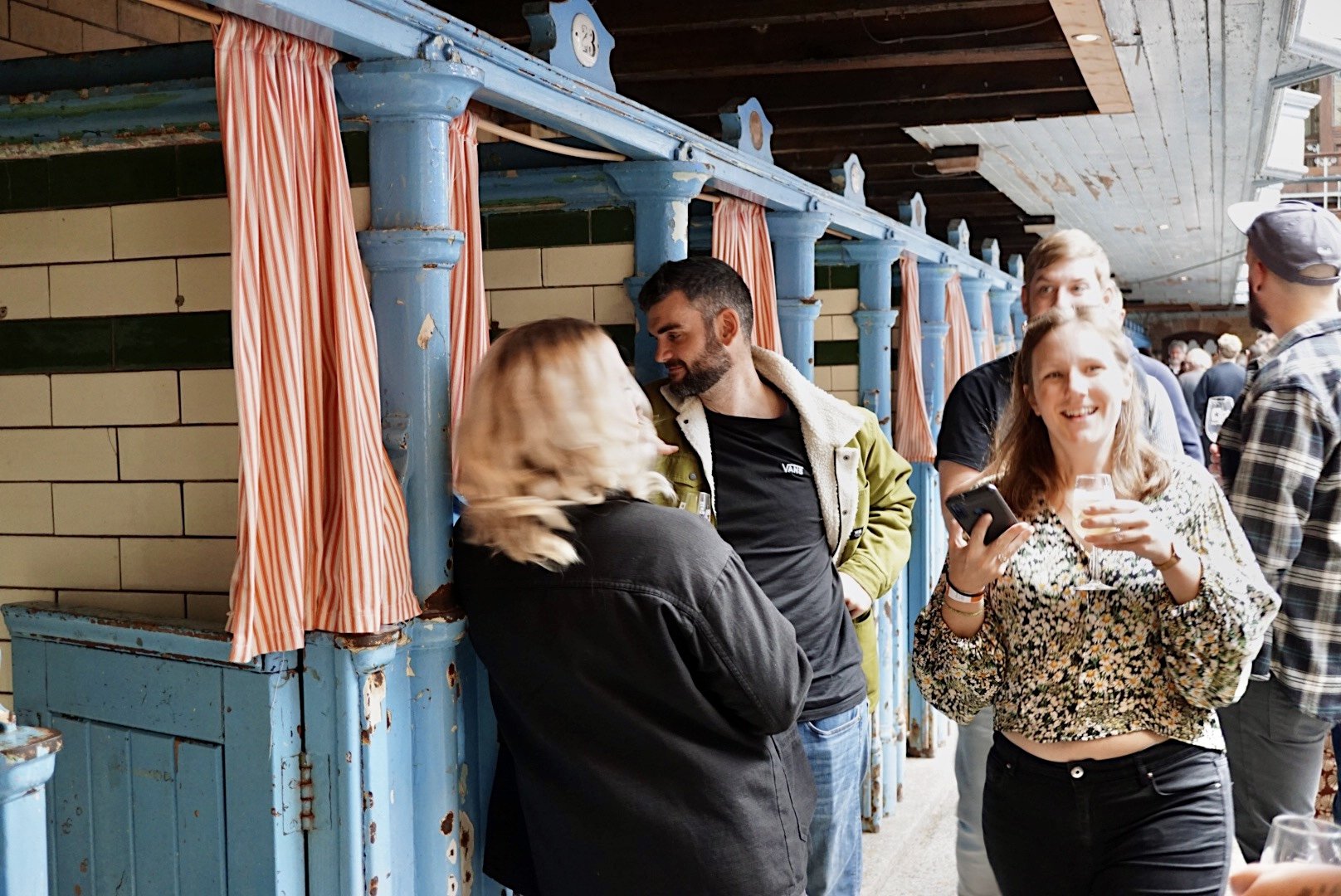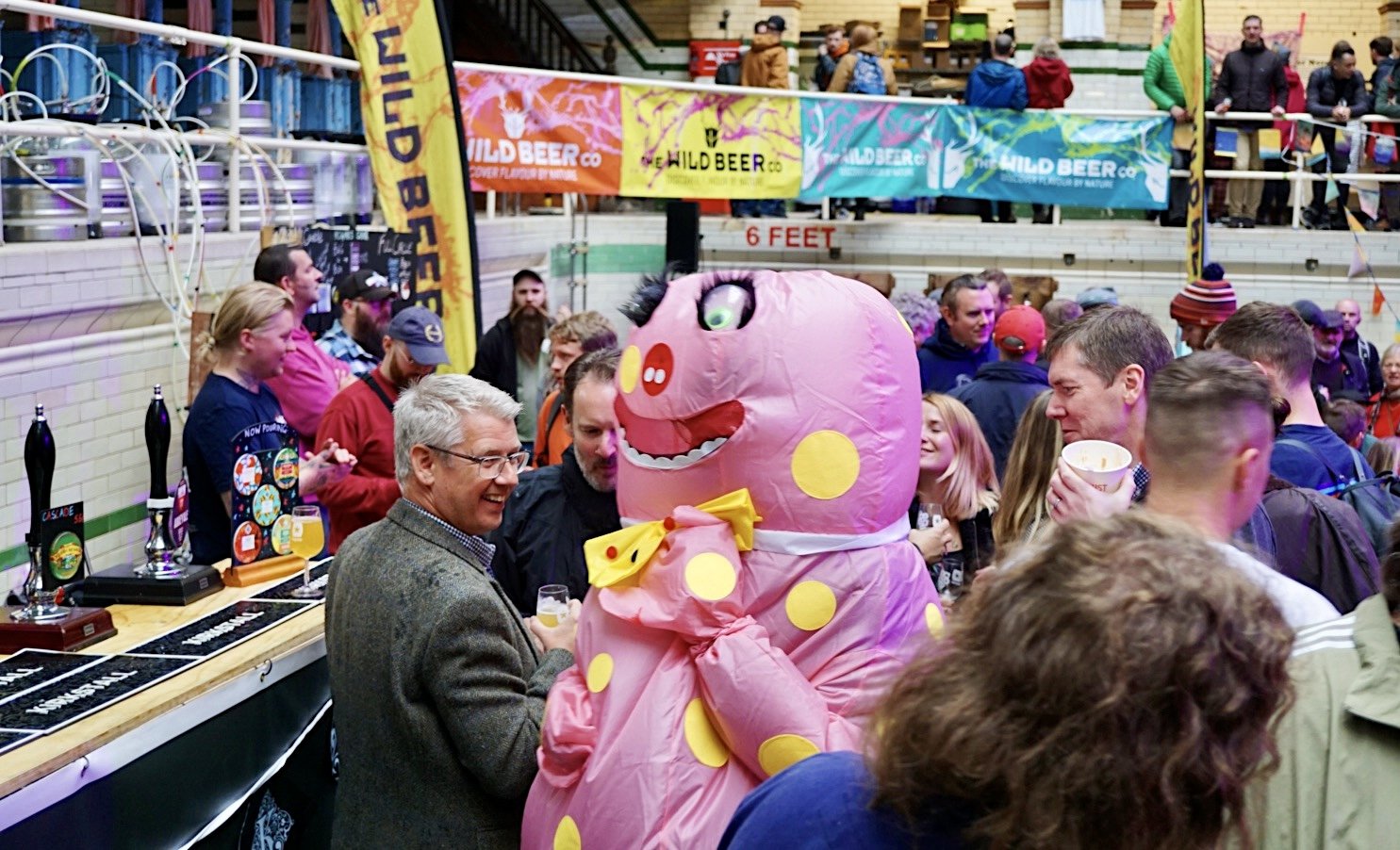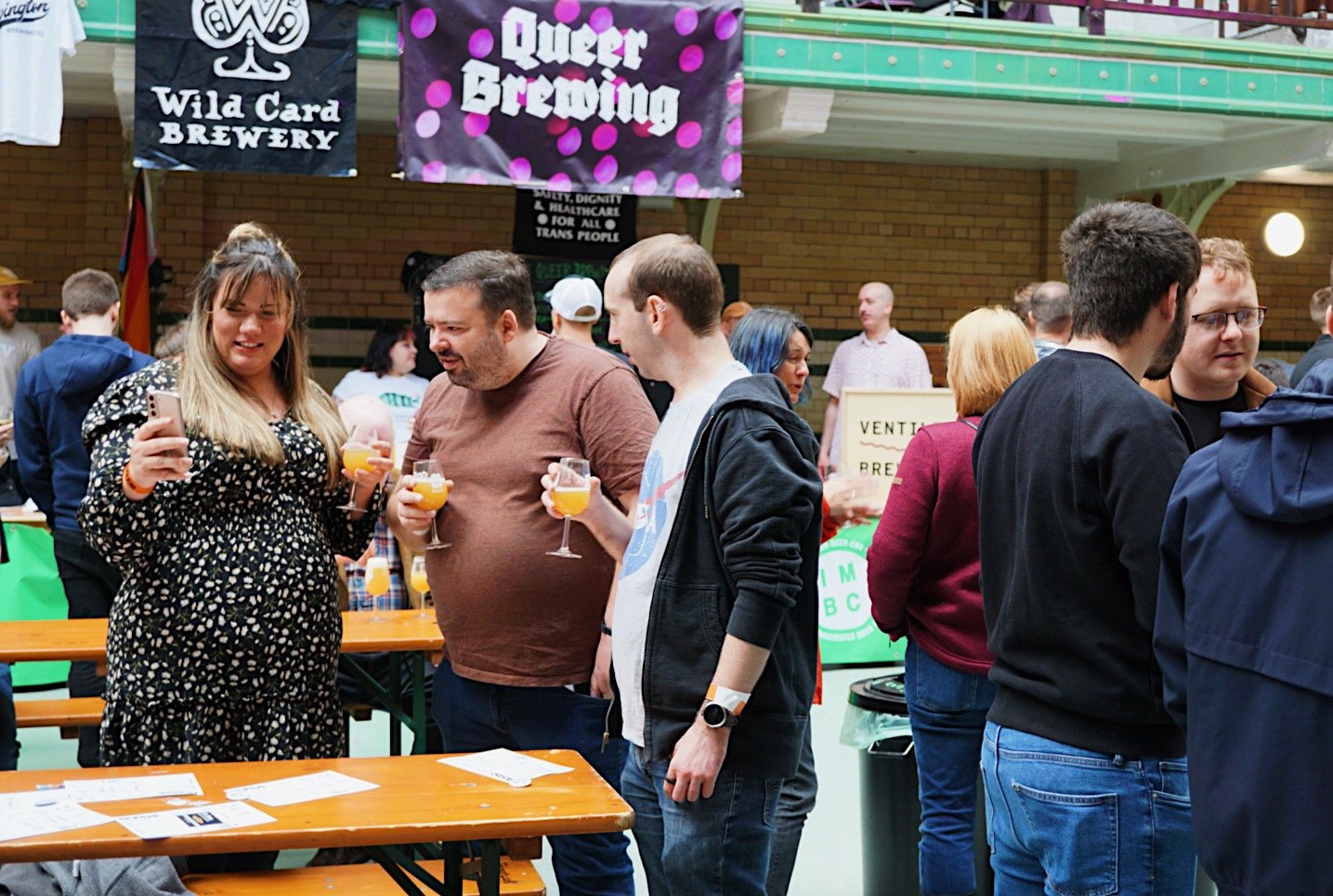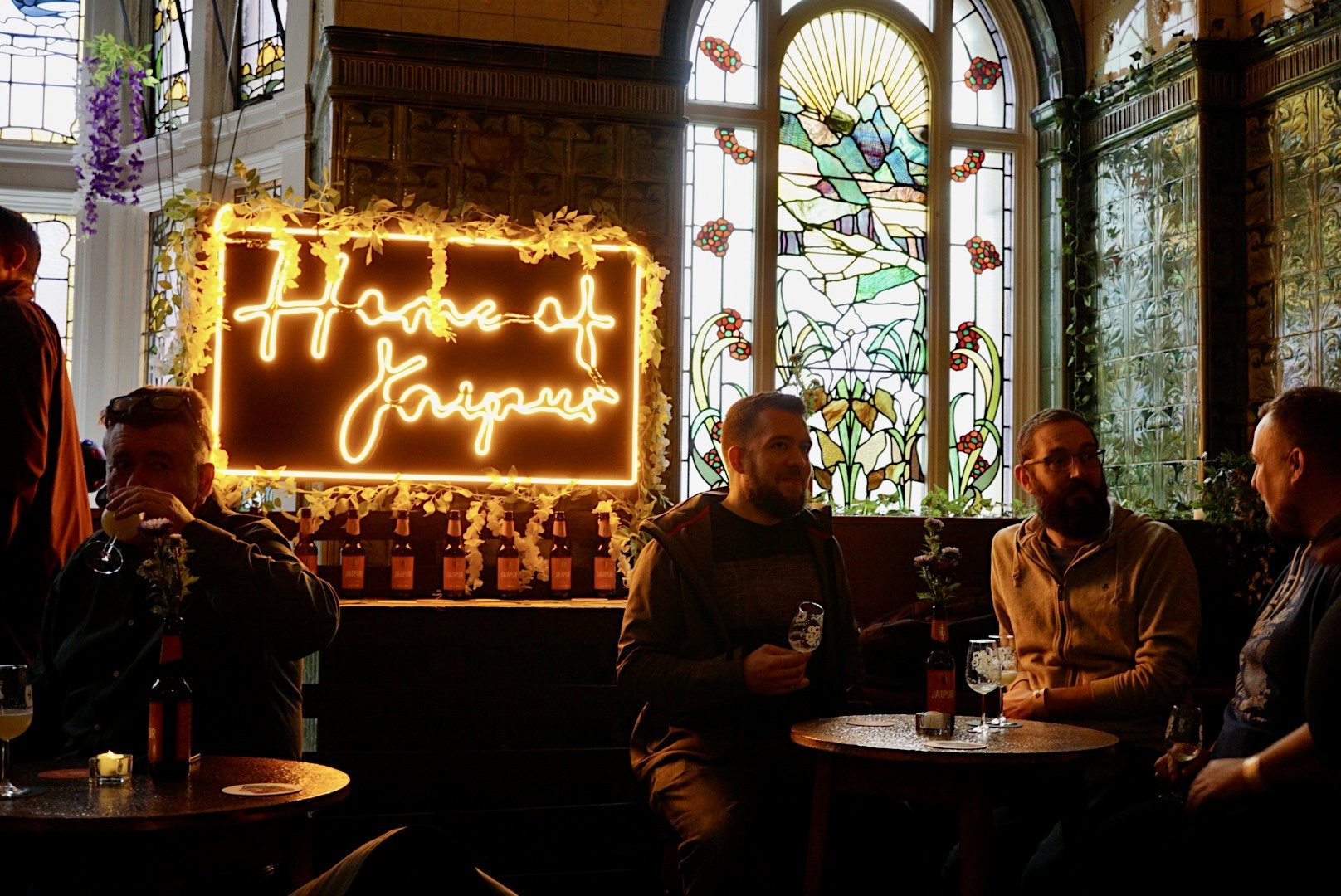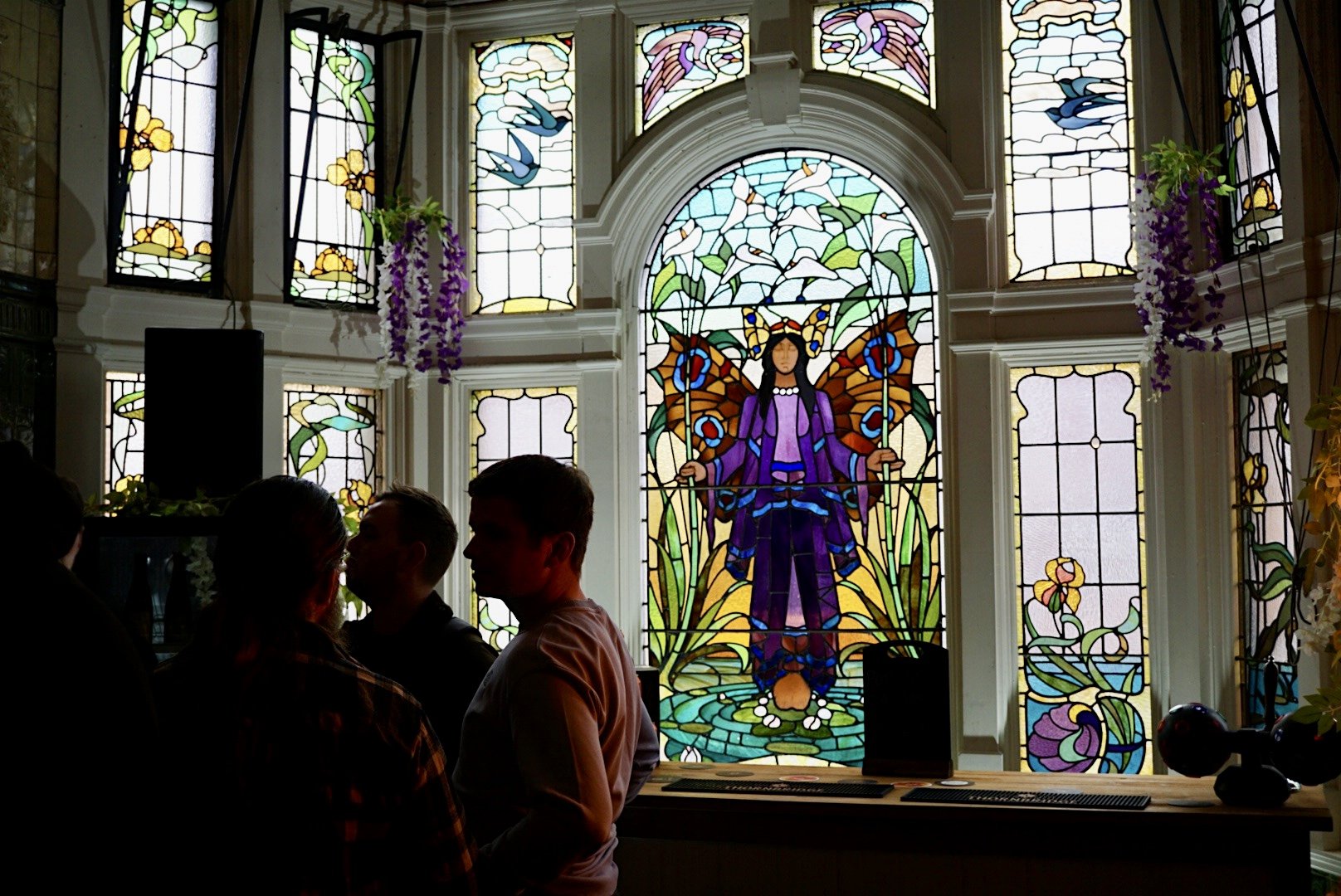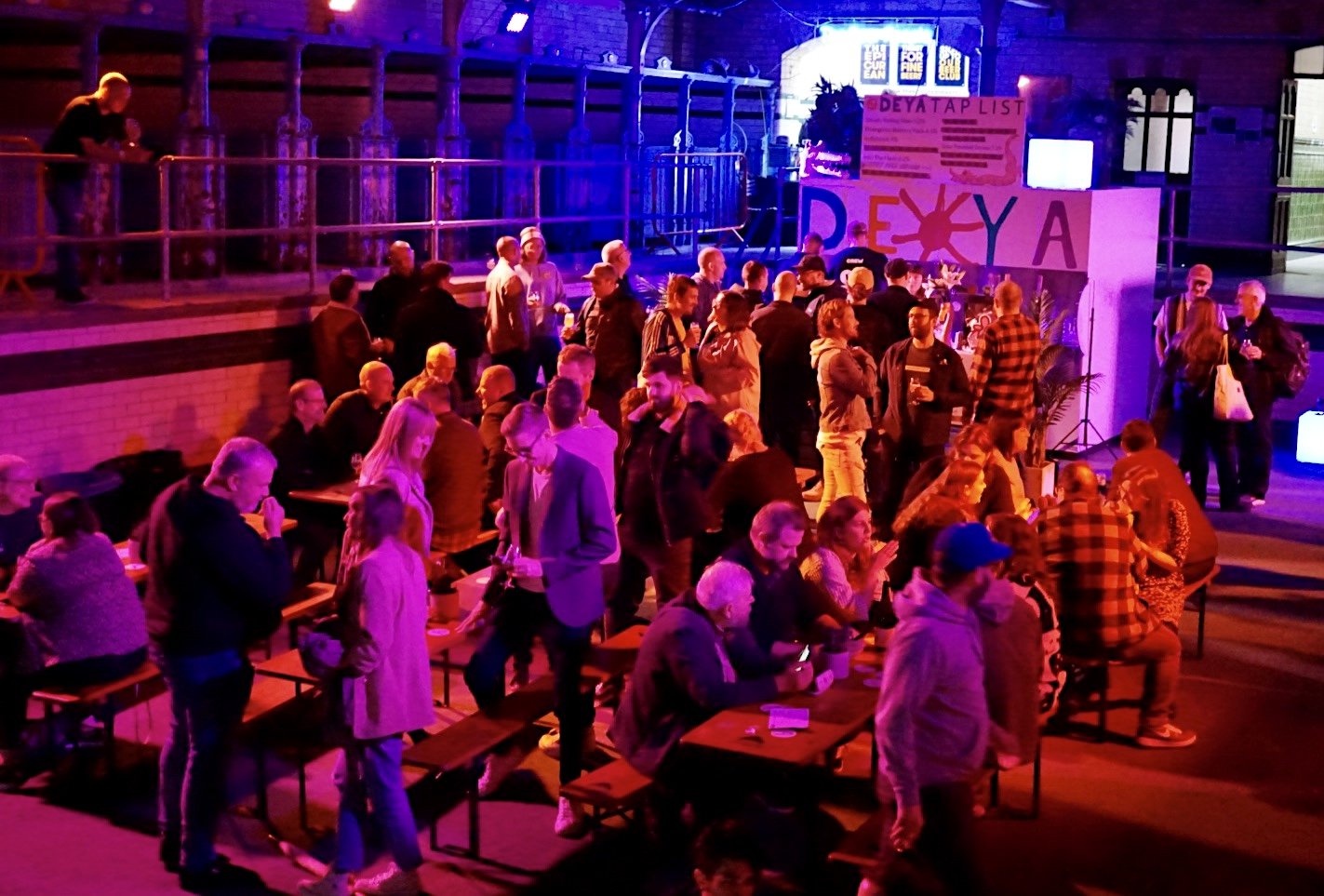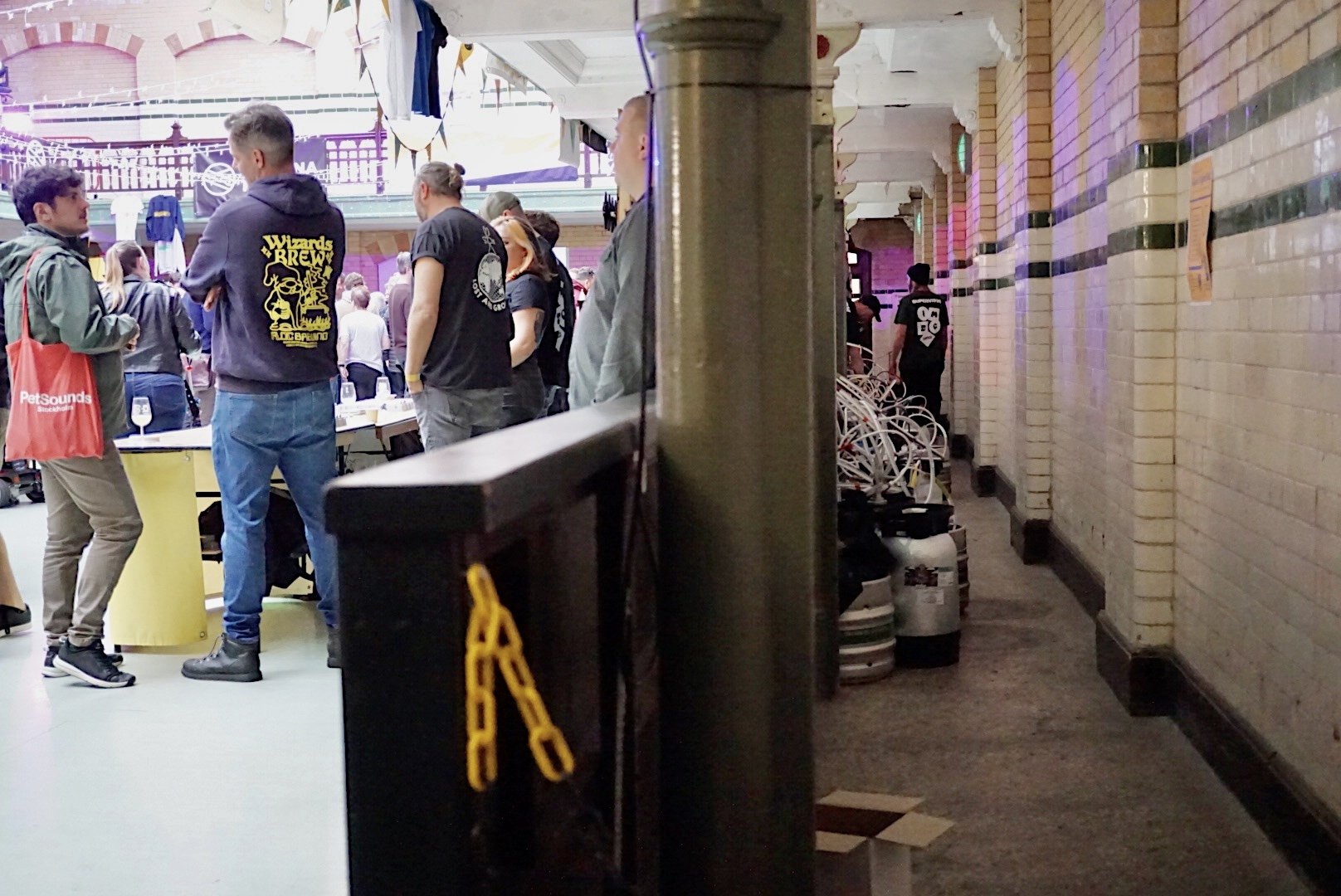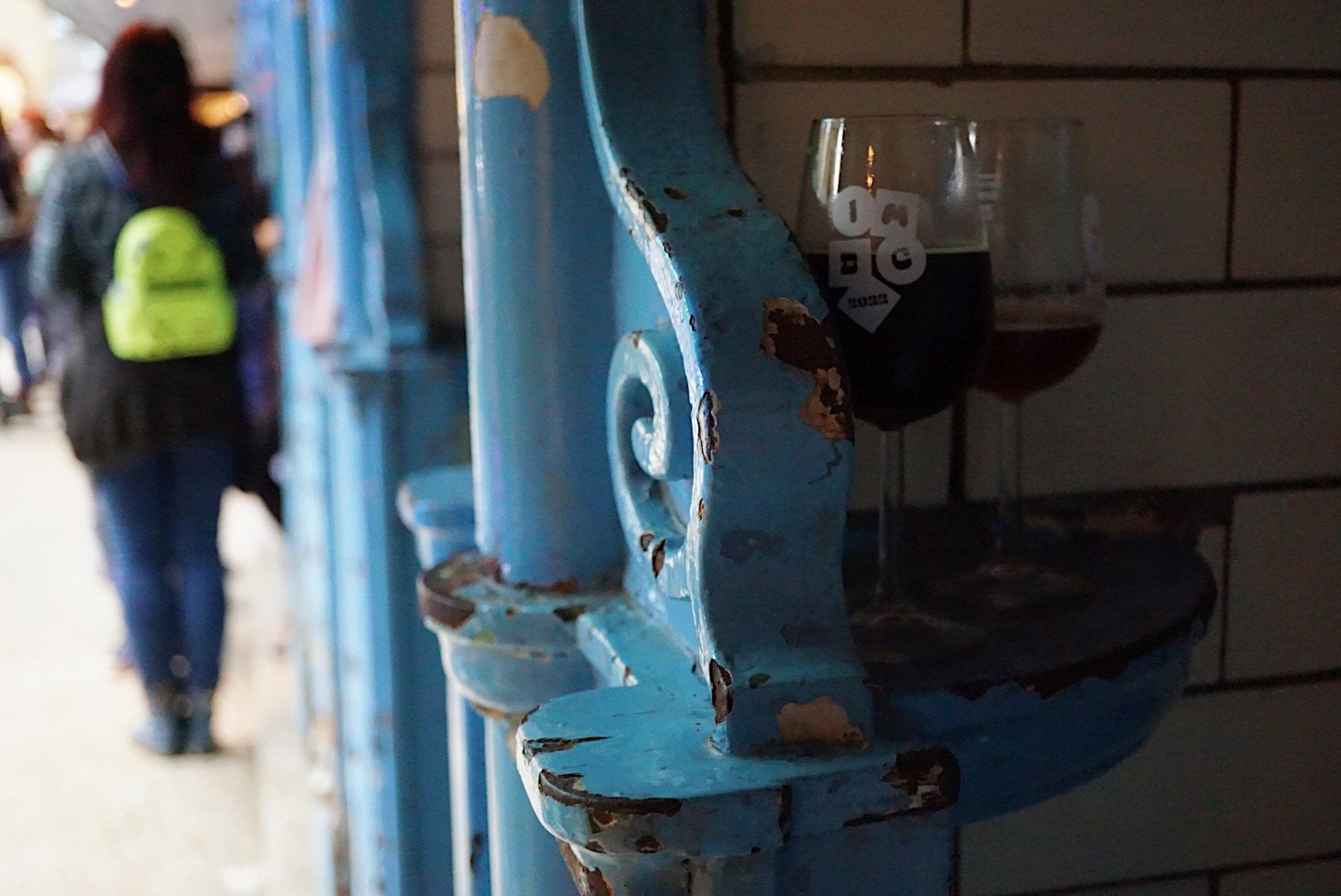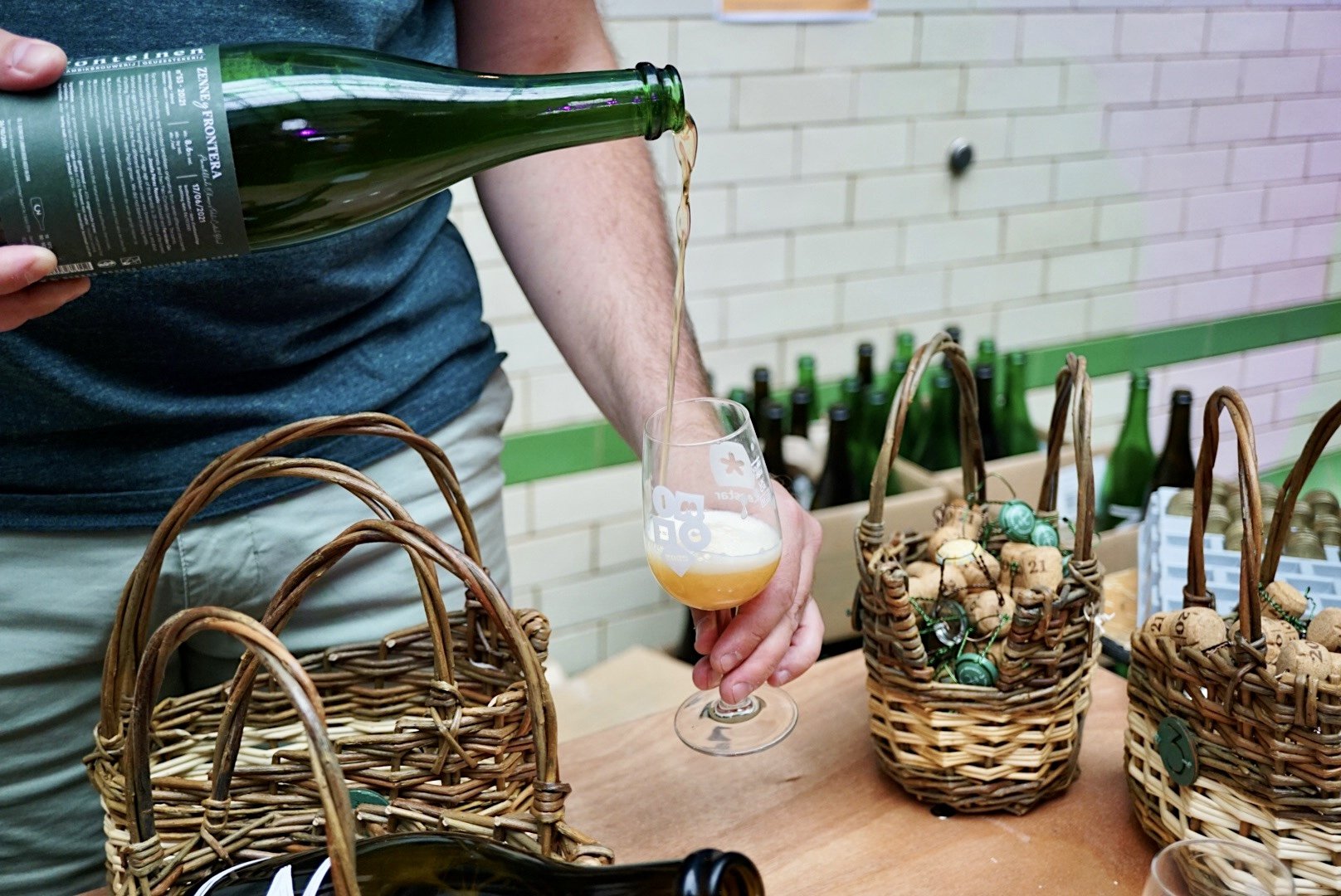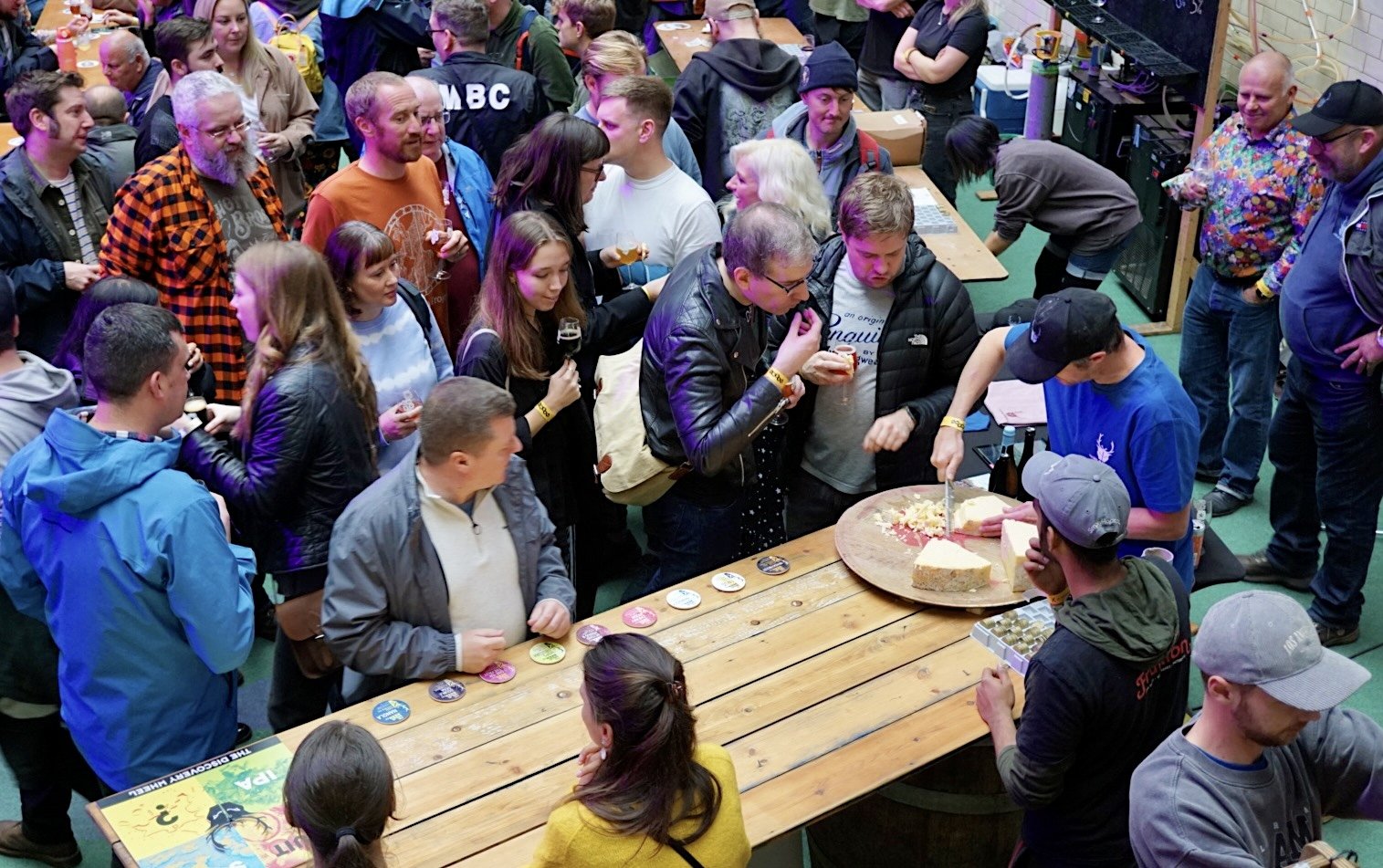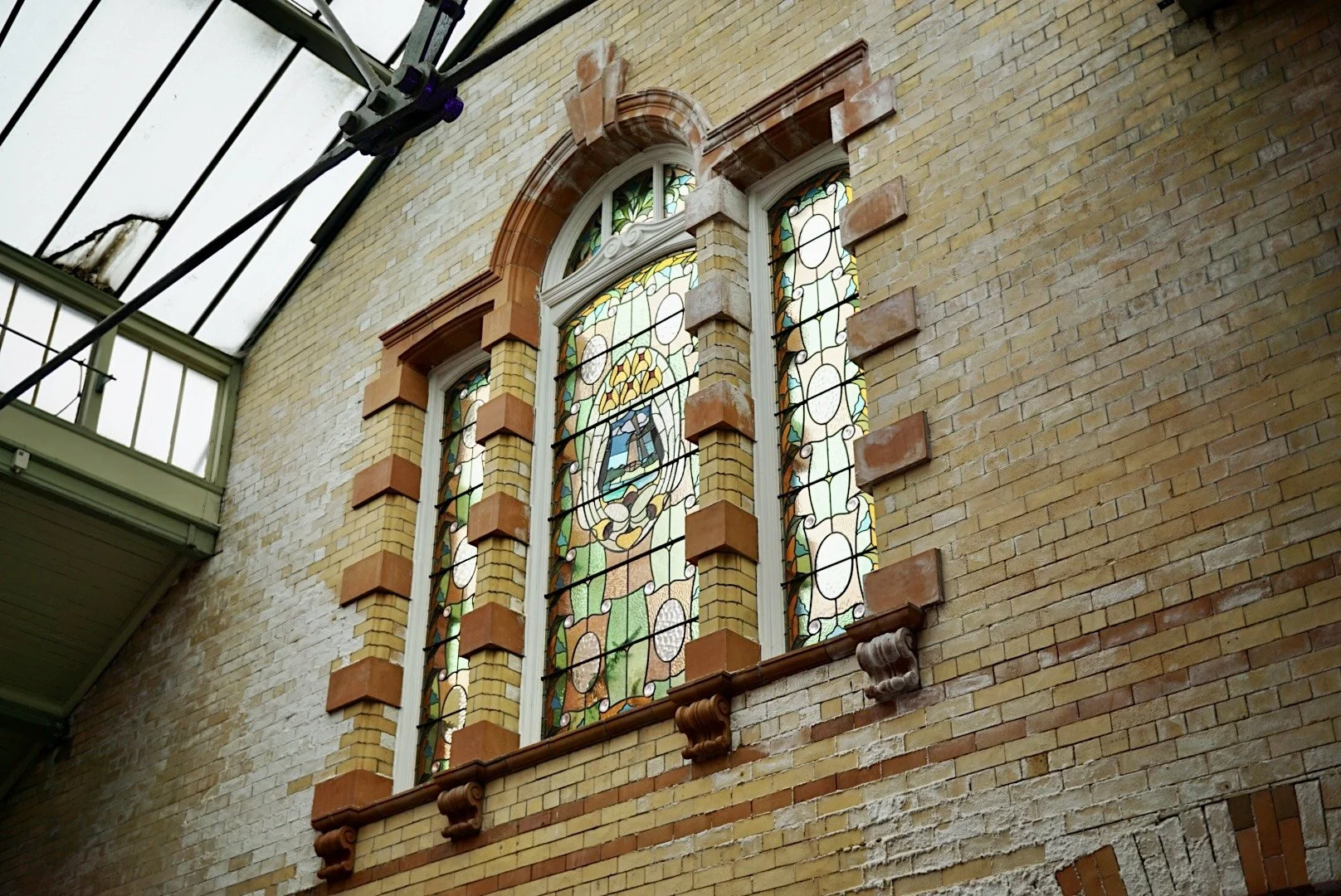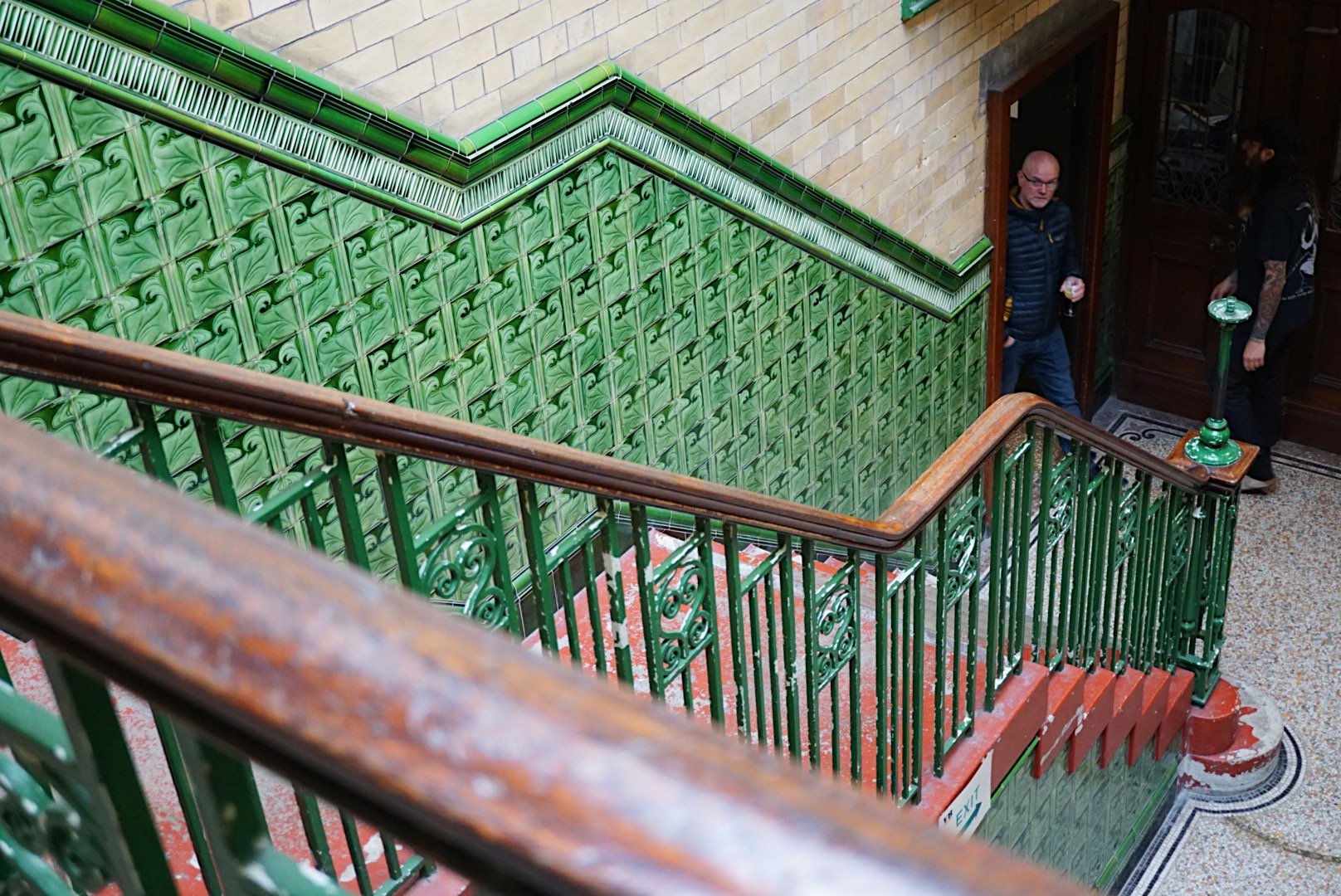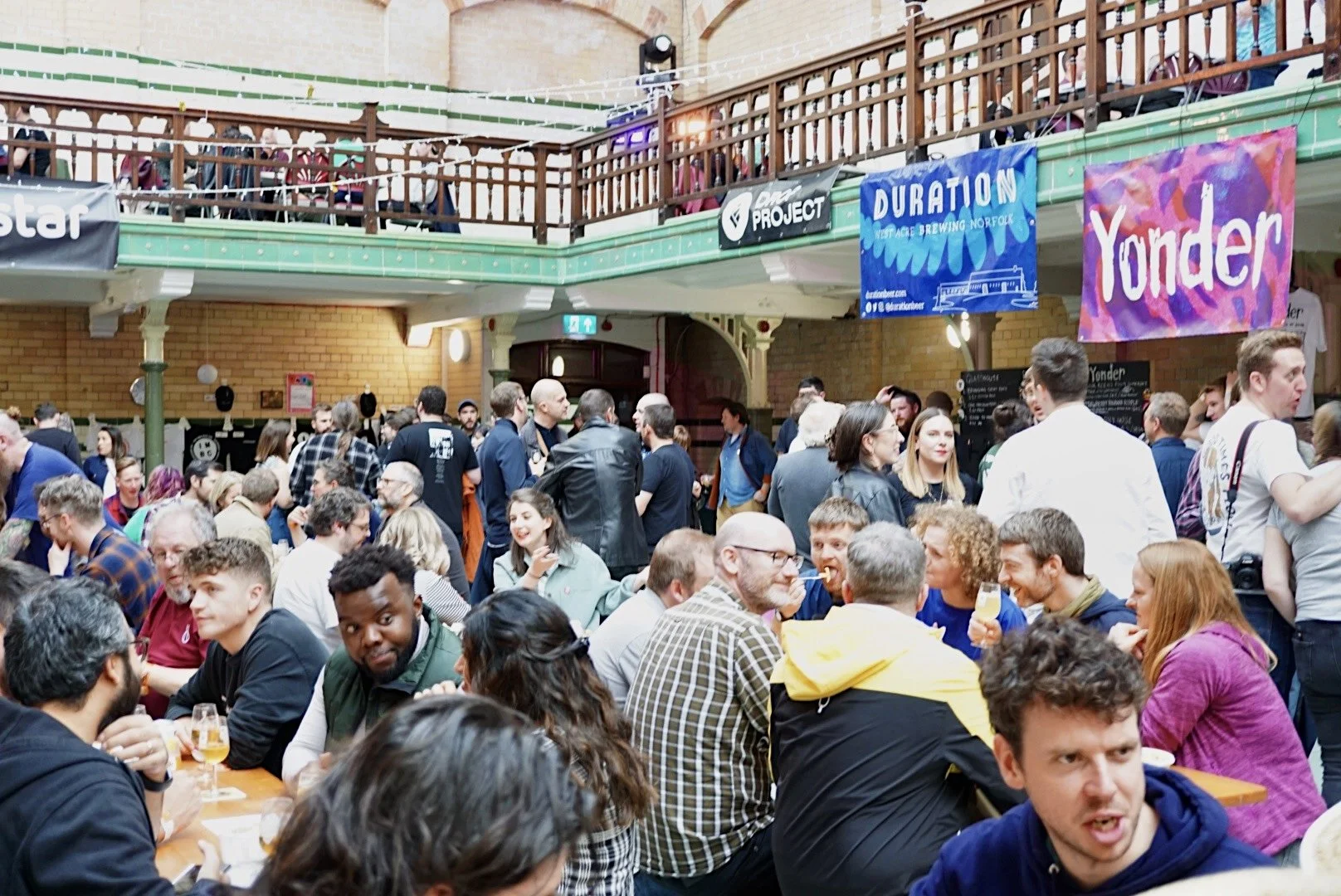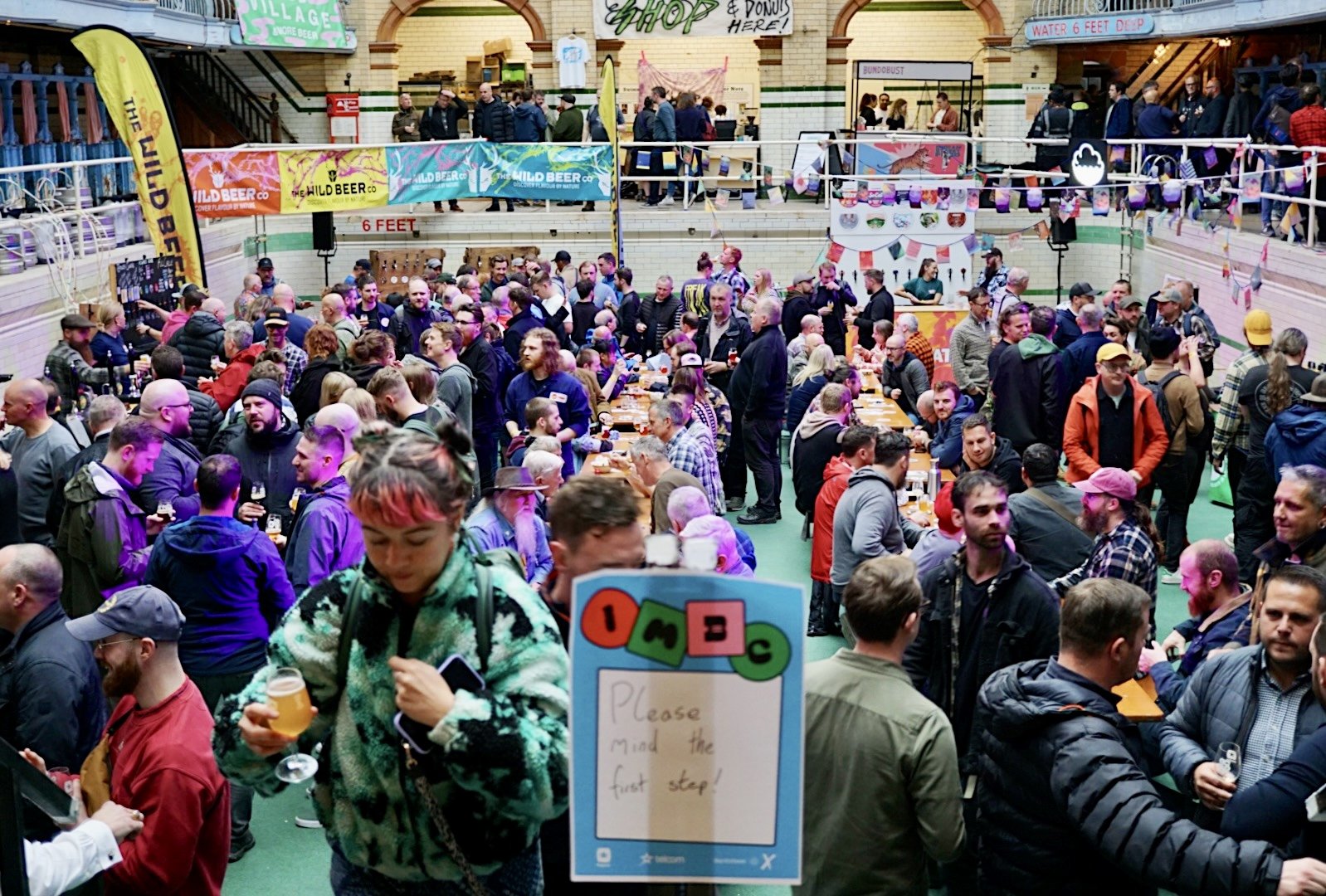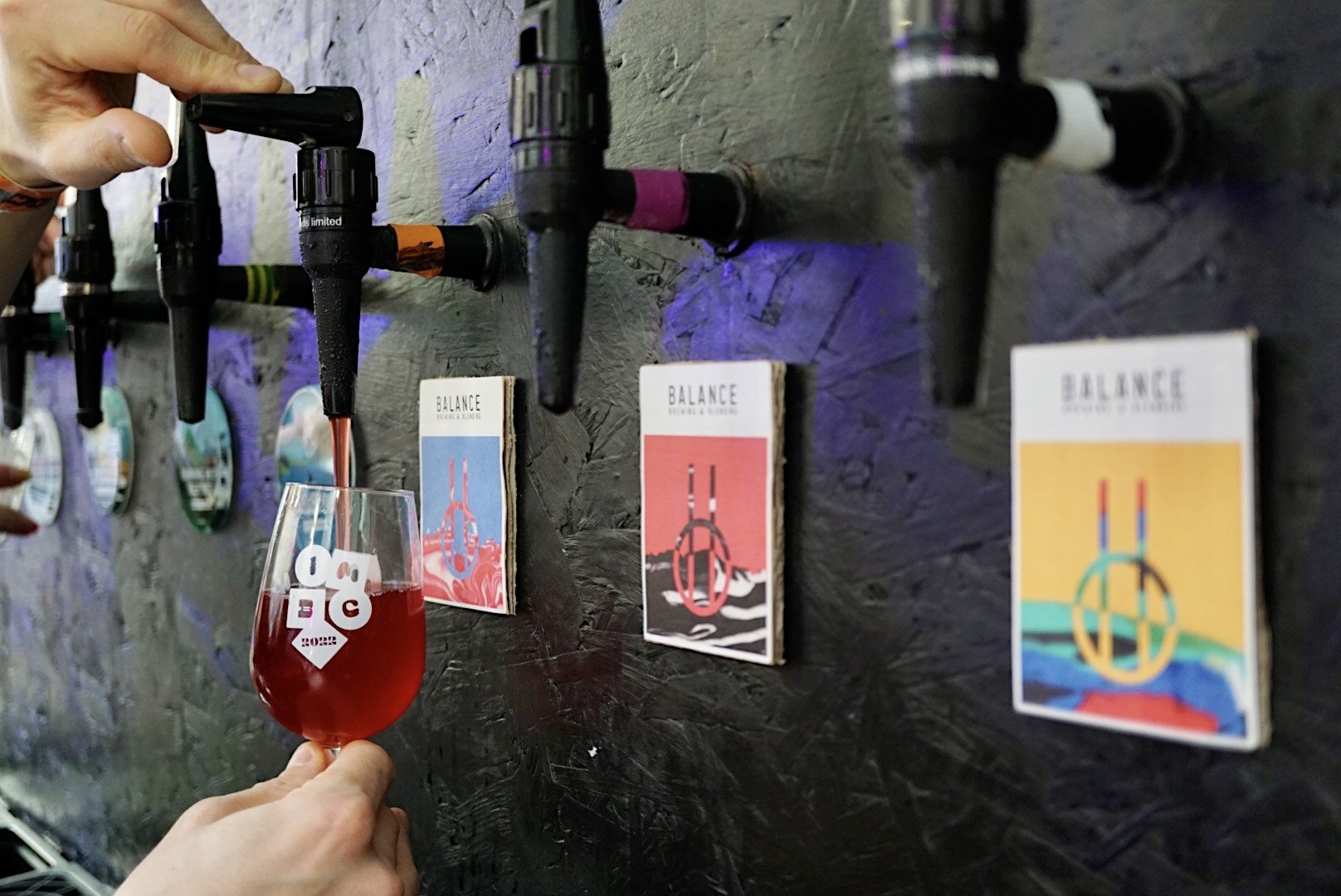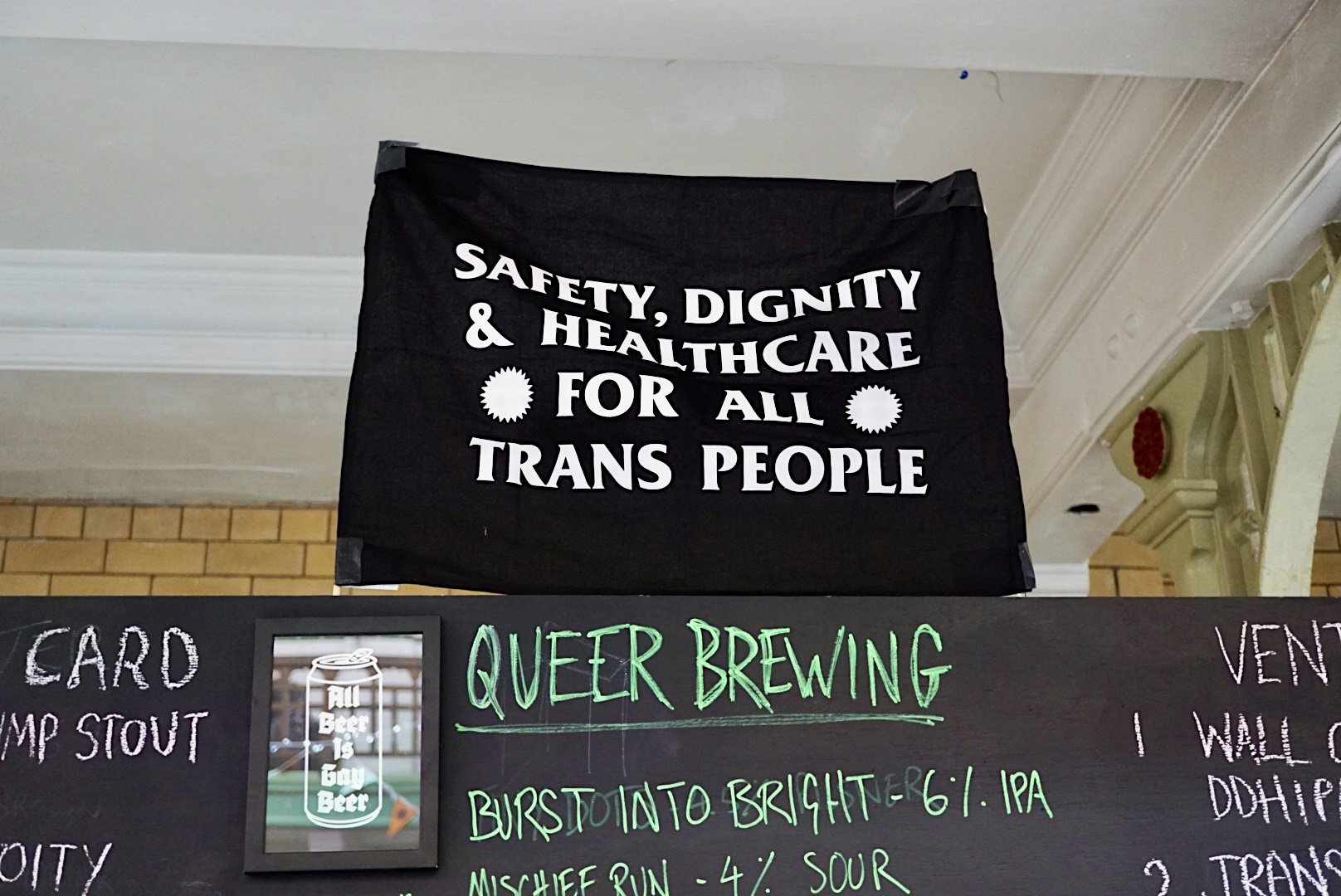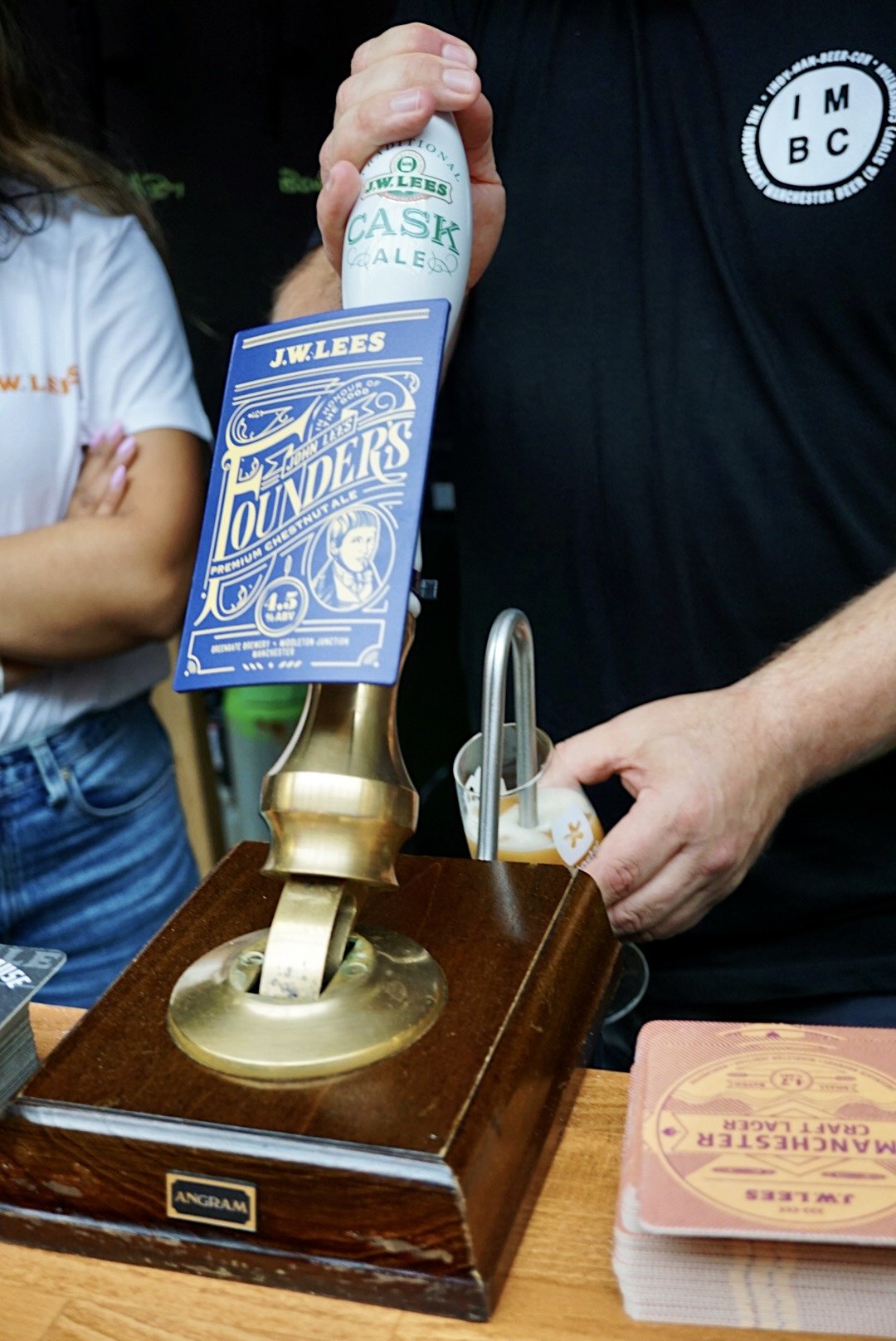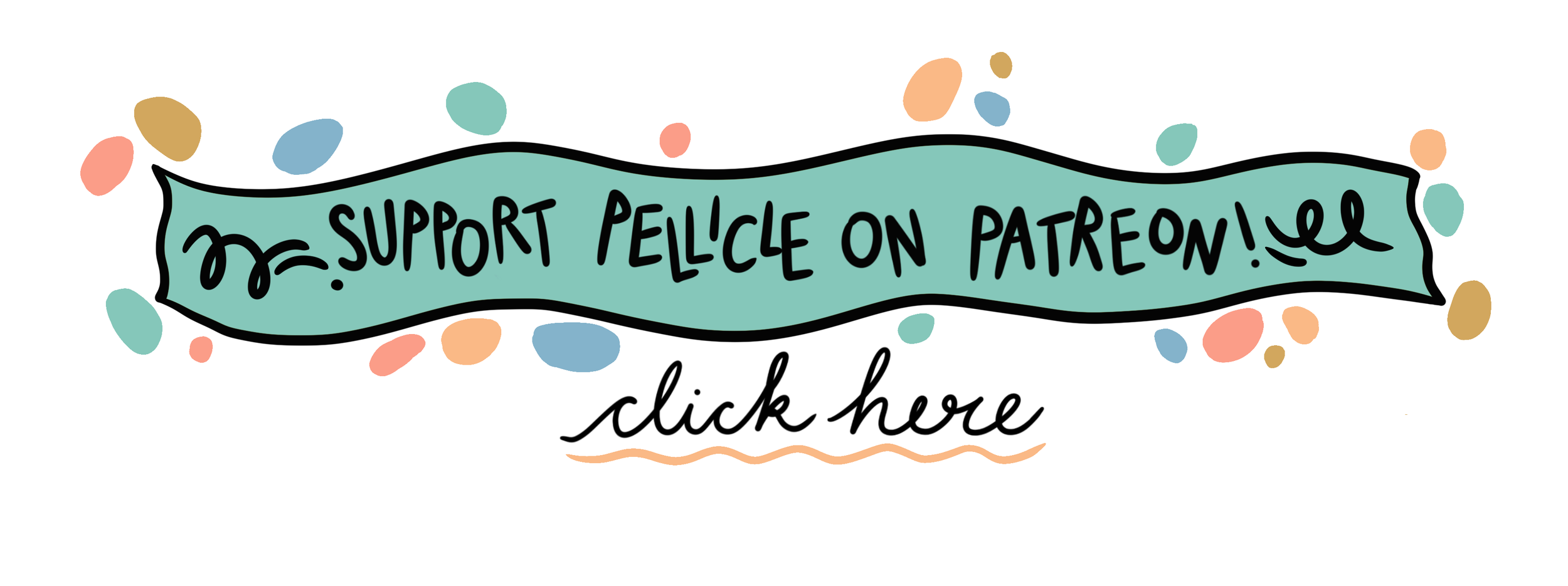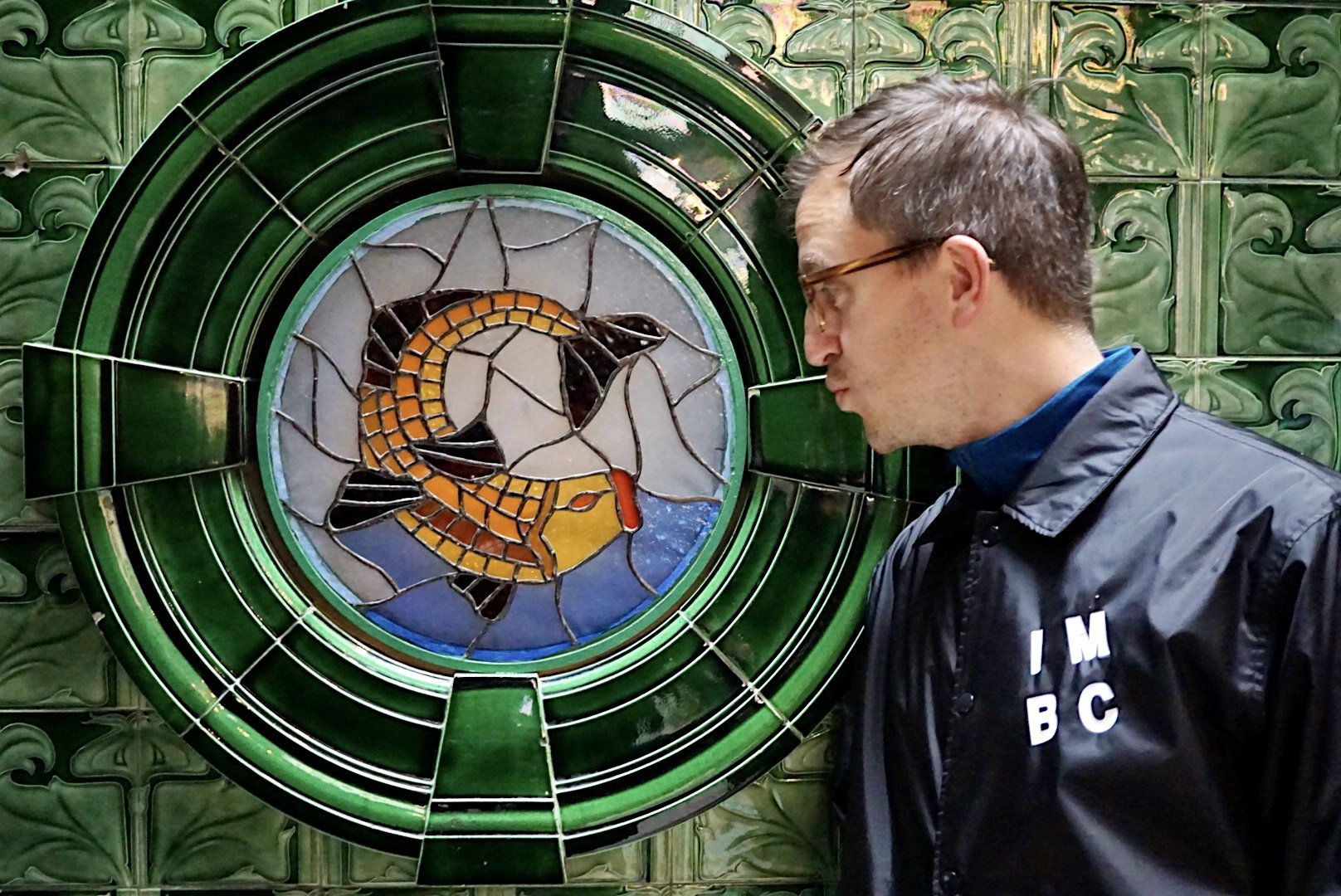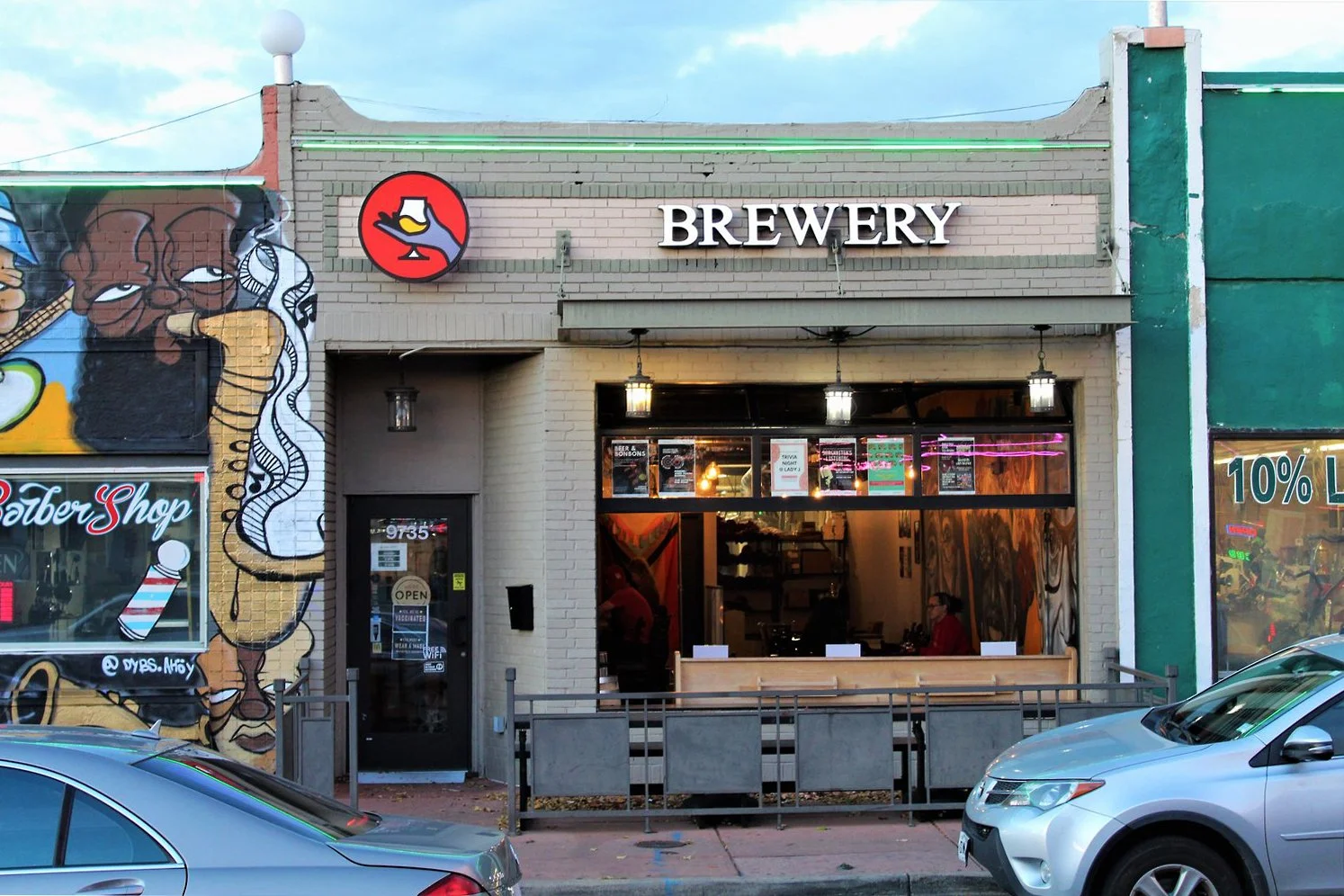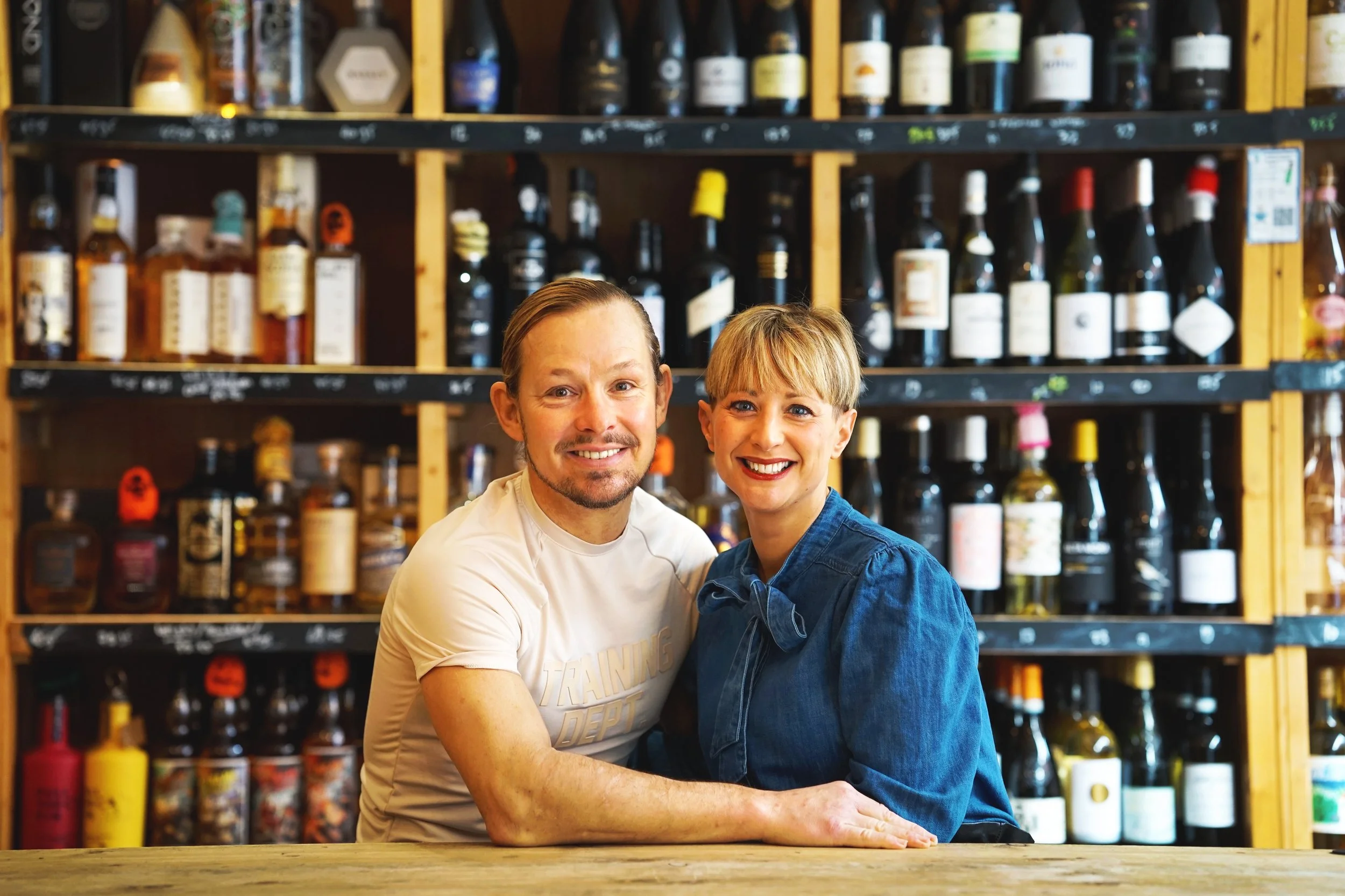I Need Some Time in the Sunshine — How the Independent Manchester Beer Convention is Looking Towards a Sustainable Future
“This is Manchester. We do things differently here.”
It may be a quote famously attributed to legendary TV presenter and music mogul Tony Wilson, but it has also come to embody the wider spirit of innovation in the celebrated northern city. Could it be applied to the area’s beer scene too? It’s a big question, but when it comes to festivals and doing things differently the Independent Manchester Beer Convention—known affectionately as Indyman, or IMBC—really has it covered.
Photography by Ross Cummins
First taking place in 2012, Indyman is a true pioneer among modern British beer festivals. It was one of the very first to put small, exciting and—at that time under-represented—craft breweries and modern beer styles front and centre. It has kept bang up-to-date with new breweries and industry trends, while also offering an aesthetic experience like no other, squeezed, as it is, into the Victoria Baths; the Edwardian swimming pool and Turkish baths complex it has become synonymous with.
But a lot can change in a decade, especially in the lightning-paced world of craft beer. In September 2022 I caught up with the event’s co-founder, Jonny Heyes, who, at the time, was planning for Indyman’s much-anticipated return following a three-year absence. After reluctantly pulling the plug on the festival during the pandemic, he and his team were preparing for the best part of 10,000 people to descend on the baths over six sessions and four days.
“It’s a lot of people, it’s a lot of beer, it’s a lot of heavy things to carry through very narrow Edwardian doorways,” says Jonny, who runs Common & Co, the company also behind some of Manchester’s most popular beer destinations including Port Street Beer House, The Beagle and Common.
“There’s a big physical and emotional expense to Indyman,” he tells me. “It’s always been a labour of love really, so you pour your heart and soul into it and you want people to come and have a good time more than anything. I hope we can deliver on that. There’s definitely been a weight of expectation this year. I’m feeling it.”
My anticipation for the festival’s return peaks on a blustery day in October, after I battle through the rain to reach the Victoria Baths. It’s hard to know where to start when describing the festival experience at IMBC but, after stepping foot into the building for the first time in years, I felt it had certainly retained that dizzying sense of wonder.
““It’s always been a labour of love really, so you pour your heart and soul into it.””
From little features like the embossed tiles and ornamental ironwork to the main beer rooms which literally see visitors step down into empty swimming baths, it’s a charming, ornate, time capsule of a venue. IMBC interweaves its distinct style around this unique space, with breweries given free rein to put their own stamp on bar frontages with the likes of neon signs, fairy lights and decorations. It adds a mesmerising sense of theatre to what is otherwise, essentially, a trade show for beer drinkers.
“Indyman has become this focal point for everyone in the industry—and everyone who loves beer—to catch up with each other,” says Adam Rickitt, the former Coronation Street actor and owner of Knutsford beer bar Dexter and Jones. “I think there is something very Mancunian about it. In some respects, New York is the mecca for American beer and I do think that Manchester is the mecca for British beer.”
The venue is often described as a ‘labyrinth’ with surprises around every turn, from pop-up tastings to musicians tucked away in nooks and crannies, like the saxophonist I found randomly playing jazz in an old shower block this year. But that’s all part of the fun.
“I think that there is no doubt that the venue makes it special. It is spectacular,” Keith Morris, a retired editor for Warrington-based Guardian Series Newspapers, tells me. “It’s that sense of turning a corner in this maze and finding that beer you were looking for. It is a bit of a magical place, to be honest. Until you find your bearings, it’s almost overwhelming.”
***
Jonny fell in love with Victoria Baths when he stumbled across it by chance when two of his friends got married there.
The building was first opened to much fanfare in 1906 when the Lord Mayor described it as “a water palace of which every citizen of Manchester is proud.”
Even a century ago, people saw the potential of this ‘water palace’ as a place to gather and celebrate. During the winter, for example, the pools were covered to allow dancing. When it finally closed in 1993, there was a sustained and successful campaign to protect it from neglect, which led to it winning a BBC competition and a cash injection of £3 million as part of a show called Restoration in 2003.
“I’d seen it on the telly and I’d seen they’d done some cool art events there,” Jonny adds. “I went to this wedding and I wandered around and thought: ‘This is amazing.’ It’s such an incredible place and it felt almost subversive to put a beer festival into it. It shouldn’t really work but it does.”
Something just clicked. Jonny was already looking for a venue for Indyman but was fed up of the “incredibly boring, stuffy” environments beer festivals were largely held in up until then. He was won over by Victoria Baths’ “crumbling splendour”—a phrase coined by food and wine writer Fiona Beckett in The Guardian that has stuck 10 years on.
“It’s an incredible place but you don’t have to take your shoes off to go on the carpet and stuff like that. They’re not too prissy about it so it strikes a really nice balance,” Jonny says.
That leap of faith has led to one of Manchester’s most celebrated beer events and now—around a decade later—Jonny admits it would be hard to separate Indyman from Victoria Baths. For one long weekend in October, they are intertwined. But it is not just the visual, or indeed Bacchanalian aspect of the festival that has such appeal. I’m reminded when I visit that each room at the festival has a different sort of energy, which breweries are encouraged to explore and play around with.
““Whether you’re with old friends or new, IMBC is welcoming and feels like home.””
“I love the buzz of everyone in craft beer coming together,” Nicola Arnold, packaging lead at nearby Cloudwater Brew Co. tells me. The Manchester brewery has poured at Indyman since it was founded in 2015, and have struck up a lasting friendship with the organisers. “Whether you’re with old friends or new, IMBC is welcoming and feels like home.”
Some breweries have the privilege of their own exclusive space and in 2022 Victoria Baths’ Turkish Rest Room became Thornbridge Brewery’s ‘House of Jaipur’, with light evocatively streaming through the striking ‘Angel of Purity’ stained glass window.
By contrast, Berkshire-based Siren brought an industrial chic feel to the dark and atmospheric boiler and filtration room, while Cheltenham’s DEYA Brewing brought bean bags and chilled vibes to their bar, all drenched in deep red light. Things seemed to naturally slow down a notch in Room 3.
“Indyman is so unique. I think it’s awesome to have loads of different areas because you can explore and break up the day,” Deya’s founder Theo Freyne tells me.
“If it’s one room and in one warehouse it’s not as exciting or interesting. The venue is very special, but I think what’s equally important is that it’s put on by people who really get the industry. So I feel like the beer selection and representation from breweries has always been amazing.”
Kate Stevens, marketing and events coordinator for Leeds-based North Brewing has poured beer at Indyman on four separate occasions and each time she has been “excited to set foot within the gorgeous Victoria Baths”.
“The anticipation of IMBC returning after a pandemic-induced hiatus was palatable,” Kate says.
“One of my favourite things about working the beer festival circuit is to meet our customers and consumers, and chatting to people at Indyman 2022 made me realise the influence this event has.”
“The team behind the festival should be immensely proud. From communication to organisation and assistance throughout the festival, they run a tight ship.”
***
A new approach for the rekindled 2022 event was to put sustainability as the festival’s main focus. For visitors, this was largely felt in the beer list, with a commitment to avoid air freight and cut down on the event’s air miles and therefore its carbon footprint.
The decision—announced just weeks before this year’s festival—was inevitably met with its fair share of grumbles from ticket holders on social media, usually accustomed to drinking US beers seldom seen on British shores at previous events.
But a push on being greener was actually something Jonny was planning to introduce back in 2020. His take is that a platform as far-reaching as a major beer festival is an impactful way to spark more challenging conversations. Discussions, Jonny argues, are more important now than ever.
“I don’t mean that from a tree-hugging perspective if you want to be cynical about it,” he tells me. “Brewing is a fairly energy-intensive business. I’m sure at some point there are going to be carbon taxes and all kinds of other financial instruments laid at breweries’ doors, and other businesses, to move towards net zero. So there is a need to talk about this.”
““Indyman has become this focal point for everyone in the industry—and everyone who loves beer.””
“But this year, even since we started planning this event, the world’s kind of changed a bit. The war in Ukraine, the inflationary crisis—it is all putting breweries under more and more pressure. And it’s just something we wanted to talk about and address,” he adds.
In a way, Jonny’s approach simply reaffirms the festival’s original goal: to champion modern, independent British brewing of the highest quality.
“We’re trying to go full circle so we can go back to that. Our opinion is we don’t need the international breweries because the calibre and quality of British brewing is world-class,” Jonny says. “This year we wanted to really pay homage to how far Britain’s brewing has come on over the past decade.
“I came to a point where I thought if people are really cross because popular US breweries like Other Half aren’t there then at least some of them will ask why and we can have those conversations about air freight and sustainability.”
Far from claiming he has all the answers, Jonny described his main focus for IMBC 2022 as simply to try and engage with as many people in beer as possible and ask: “Should we be doing this differently?”
Indyman’s approach to sustainability may be a work in progress and, at times, a hard sell but DEYA’s Theo Freyne tells me he sees the merit in Jonny using his platform like this.
“I think it’s really good and a really important thing to address as our industry matures,” he says. “As breweries start to focus on their businesses and other things just outside of the product, I do think it will be a conversation we’re going to be having more and more.
“Air freighting beer is an interesting conversation and dilemma because it is beneficial to product quality but detrimental to the environment so it becomes almost: ‘What camp are you in? But it’s not unlike the craft beer world to have a bit of infighting is it?”
“Concerns around long-term sustainability are becoming more of an issue, and I think anyone in this industry has to at least have an eye on it. Focusing on it this much is not typically what a festival would do…but I guess Indyman is not a typical festival,” Theo adds.
Indyman being bold and proactive in its new approach to sustainability is unlikely to win everyone over but it has strengthened its relationship with breweries like Cloudwater.
“IMBC has a special place in Cloudwater’s heart, so many of our values interlink, from sustainability to inclusivity and supporting small businesses during a time when so many are struggling,” Nicola says.
“Just seeing how much joy the festival brings to punters and our friends within the brewing industry is a treat in itself. We’ve all had a rough couple of years so to be able to share such a special return to festivals in such an iconic Manc venue is something else.”
Exploring this new direction has also seen Jonny re-evaluate the kinds of breweries he works with. For example, J.W. Lees employs 1,300 people at its brewery and pubs in Greater Manchester. It is on a completely different scale and footing to any of the craft breweries that have previously been under IMBC’s banner—but it is family-owned, independent, and perhaps most importantly of all: local. Not to mention the company has been around since 1828. If there are lessons to be learned about economic sustainability, some of them can surely be found here.
“These days you can sell your beer to someone in London or Madrid or Chicago or wherever,” Jonny says. “Whereas Lees is still very much in that more old school model of making beer for the person at the end of the street. They make beer, put it in a cask, drive it to the pub down the road.”.
J.W. Lees was welcomed to the festival for the first time this year to go shoulder-to-shoulder with a whole host of the country’s best microbreweries – and a collaboration beer was made to celebrate; a fresh hop extra special bitter called ‘Hops Are Green’.
“We could have a long talk about whether we’re ‘craft’ or not but I think essentially the common strand that brings us all together is that we love beer,” says Michael Lees-Jones, head brewer and production director at JW Lees. “Indyman is a great idea to showcase the beers that are around. The range of beers in the UK is just phenomenal. You can taste any style you want. We should be justifiably proud of the beers that are made right here.”
“Ultimately, the most sustainable beer that you can drink is a pint of beer in a pub that was brewed locally with local ingredients because it’s paying back into your local economy,” Jonny agrees. “It’s helping to maintain jobs and it has a relatively low carbon footprint. You’re combining a social thing with an economic thing—there’s a lot of good stuff that happens in that. It’s not a very sexy message but it is true.”



